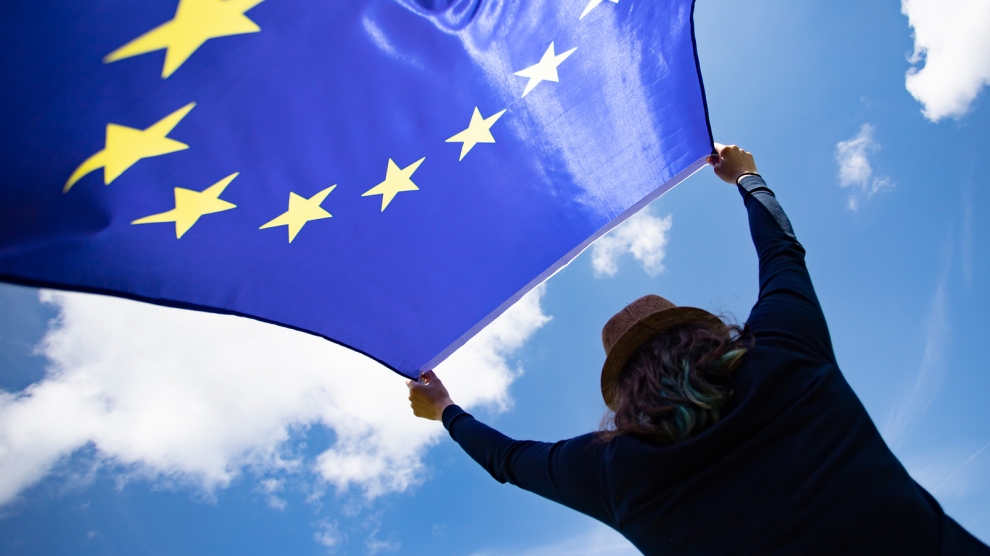Jean Monnet, one of the founding fathers of ever closer union in Europe, held the mantra that crises are opportunities. The coronavirus pandemic certainly falls into the former category, and has turned the world upside down in recent weeks. Despite infections and hundreds of deaths being reported daily across Europe, it is nonetheless important that we have one eye on the recovery. The corona crisis will leave recession, unemployment and extensive damage to European industry in its wake when it eventually passes. The right blueprint to relaunch the EU economy is therefore needed now.
Opportunity takes the form of a 500 billion euros rescue package agreed by EU member states and a 750 billion euros stimulus package earmarked by the European Central Bank to combat the impact of the coronavirus.
But how should this be spent?
While the EU is doing a lot right – the goals of the European Green Deal, support for SMEs and the importance of Europe’s digital transition should remain vital cornerstones of Europe’s future – the threats to globalisation are already being felt. The voices calling for national/European actions to protect and support European business in isolation will grow. Calls for reshoring will increase and there is a risk that the newly launched EU Industrial Strategy will be used as a vehicle to support ailing European companies and pour money into favoured initiatives, rather than support innovation and cutting-edge technologies. When proposals for the next Multiannual Financial Framework are revamped, and the Work Programme for 2020 updated, decision-makers should bear the following points in mind.
Firstly, EU leaders need to remember that supply chains are global. They should not shut borders and create a “Fortress Europe”. Zero tariffs on imports are needed, and the EU should look to lift their export ban as soon as possible.
 Secondly, there is a need to strengthen and complete the EU Single Market. While seeming staid and unsexy compared to newer initiatives, completing the EU Single Market – by filling in gaps, making sure that legislation is properly implemented across the EU and correctly enforced – would work wonders for Europe. The Single Market is Europe’s greatest asset, and should include finance/banking, services and standards. The Internal Market is also one of Europe’s best opportunities for the future: achieving this would be the biggest single advantage for business in Europe. Estimates suggest a more intergrated and better functioning Single Market would add an additional €183 to 269 billion euros annually for manufactured goods, and an additional 338 billion euros annually for services. In total this represents a rise in EU GDP of approximately 12 per cent.
Secondly, there is a need to strengthen and complete the EU Single Market. While seeming staid and unsexy compared to newer initiatives, completing the EU Single Market – by filling in gaps, making sure that legislation is properly implemented across the EU and correctly enforced – would work wonders for Europe. The Single Market is Europe’s greatest asset, and should include finance/banking, services and standards. The Internal Market is also one of Europe’s best opportunities for the future: achieving this would be the biggest single advantage for business in Europe. Estimates suggest a more intergrated and better functioning Single Market would add an additional €183 to 269 billion euros annually for manufactured goods, and an additional 338 billion euros annually for services. In total this represents a rise in EU GDP of approximately 12 per cent.
Thirdly, an increasing global focus on R&D, technology and innovation is needed to create growth and jobs as well as secure our future. The manner in which scientific organizations around the world have voluntarily and enthusiastically come together – sharing enormous amounts of information to find therapeutic treatments and vaccines to counter the coronavirus – should be a model for the future for all sectors.
Finally, the free movement of labour among EU member states and with its non-EU neighbours needs to be prioritised. Sadly, hostile views on migration are vote-winners in Europe, and Covid-19 has made border closures easier. This approach is wrong. Despite the short term economic downturn, there is a structural need for labour in Europe: particularly skilled workers. The EU’s recovery and economic growth depends on the technology, engineering and healthcare sectors, for example, attracting the right talent. To this end, the provisions included in the EU Directives on Intra-Corporate Transferees and Posted Workers – as well as the Blue Card scheme – need to be fully utilised nationally to facilitate this.
Europe is facing a huge crisis at the moment: EU leaders have the possibility to turn this into an opportunity. For the sake of Europe, and its recovery, let’s hope they take it and turn Jean Monnet’s credo into reality.
—
Unlike many news and information platforms, Emerging Europe is free to read, and always will be. There is no paywall here. We are independent, not affiliated with nor representing any political party or business organisation. We want the very best for emerging Europe, nothing more, nothing less. Your support will help us continue to spread the word about this amazing region.
You can contribute here. Thank you.



